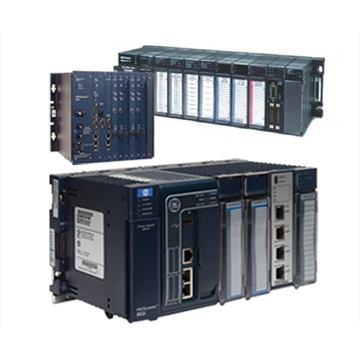Unlock the Secrets to Choosing the Perfect Control System Parts for Your Industrial Revolution!
In today's fast-paced industrial landscape, the importance of control system parts cannot be overstated. These components play a crucial role in optimizing processes, enhancing efficiency, and maintaining safety standards. As industries increasingly embrace automation, the demand for reliable and effective control systems has surged. Selecting the right components is essential, as they form the backbone of automated processes, impacting everything from productivity to operational costs. The journey to finding the ideal control system parts may seem daunting, but understanding their significance is the first step towards achieving operational excellence.

Understanding Control System Parts
Control system parts are integral components that work together to regulate and manage various industrial processes. At their core, these parts ensure that systems operate within desired parameters by monitoring conditions, processing inputs, and executing commands. A typical control system comprises several key components, including sensors, actuators, controllers, and the interfaces that connect them. Sensors gather real-time data, such as temperature or pressure, while actuators translate control signals into mechanical movement or adjustments. Controllers analyze the data received from sensors and determine the appropriate response, ensuring that the system remains stable and efficient. Understanding the function and interplay of these components is essential for anyone looking to optimize their industrial applications.
Key Factors to Consider When Choosing Control System Parts
When it comes to selecting control system parts, several critical criteria must be considered to ensure optimal functionality and performance. Compatibility is paramount; components must work seamlessly together to avoid system failures. Functionality is another vital factor—each part should meet the specific operational requirements of the industrial application. Durability is equally important; components should be able to withstand the rigors of the operating environment, including extreme temperatures, vibrations, and other stressors. Finally, scalability is key; as industrial needs evolve, the ability to expand or upgrade control systems without significant overhauls is invaluable. By keeping these factors in mind, businesses can significantly enhance their overall system performance and reliability.
Common Types of Control System Parts
Several types of control system parts are commonly used across various industrial applications. Sensors are the eyes of the control system, detecting changes in the environment and providing essential data to the controller. Actuators serve as the muscles, translating control signals into physical actions, such as opening a valve or adjusting a motor's speed. Controllers act as the brain, processing information from sensors and sending commands to actuators to maintain desired conditions. Additionally, interfaces enable communication between different components, ensuring that data flows smoothly throughout the system. Understanding these parts and their specific roles is crucial for anyone involved in industrial automation, as it helps in making informed decisions when purchasing components.
Best Practices for Purchasing Control System Parts
When it comes to sourcing control system parts, following best practices can make a significant difference in ensuring reliability and performance. First and foremost, conducting thorough research on suppliers is essential; this includes evaluating their reputation, customer reviews, and the range of products they offer. Quality assurance processes must also be scrutinized, as high-quality components are crucial for minimizing downtime and maintenance costs. Understanding warranties and support options is another key aspect; reliable suppliers should provide robust support and clear warranty terms to protect your investment. By adhering to these practices, businesses can secure dependable control system parts that contribute to long-term operational success.
Enhancing Industrial Efficiency Through Control System Parts
In conclusion, the selection of control system parts is a vital process that can significantly impact the efficiency and reliability of industrial applications. By understanding the functions of these components, considering key selection factors, and following best practices when purchasing, businesses can optimize their control systems for maximum performance. As industries continue to evolve with technological advancements, staying informed and making educated choices will be paramount. Engage with this topic further, and take the necessary steps to enhance your industrial processes through the right control system parts.










تعليقات